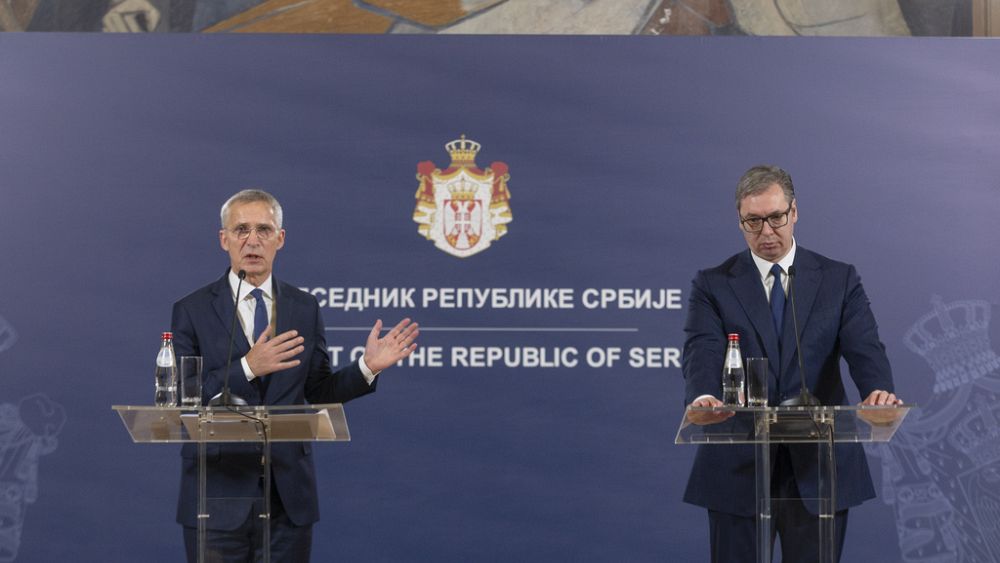The NATO Secretary General has called for an end to tensions between Serbia and Kosovo. Hostilities which could jeopardize the membership of the two States in the European Union.
At the end of a two-day visit to the Balkans, NATO Secretary General called for an end to tensions between Serbia and Kosovo. In Belgrade, Jens Stoltenberg urged Serbian President Aleksandar Vučić not to send additional soldiers to the border. The troops were sent after an attack by local Serb militants in northern Kosovo last September, in which a police officer and three attackers were killed.
Aleksandar Vučić said Kosovo’s Serb minority were also victims : “I informed Secretary General Stoltenberg that 13 percent of Serbs left northern Kosovo and Metohija last year due to enormous pressure, arrests, harassment and threats from the Kosovo regime . If that’s not violence, then I don’t know what violence is. I’m speaking to the collective West rather than NATO when I talk about this.”
NATO Secretary General welcomed European Union proposal to create community of Serbian-majority municipalities to reduce tensions : “I welcome the latest EU proposal to create the Association of Serb-majority Municipalities of Kosovo. This would be a key step towards the normalization of relations. I call on Belgrade and Pristina to engage constructively in dialogue facilitated by the EU, because it is the only path to lasting peace and stability.”
Shortly before, Jens Stoltenberg had sent a similar message to Kosovo’s leaders in Pristina. European diplomats have warned both sides that failure to end hostilities would undermine hopes of European Union membership.
Tensions between Kosovo and Serbia have persisted since the deadly war between Serbian forces and Albanian independence rebels in 1998-1999 which led to NATO intervention against Belgrade.
Municipalities boycotted
Kosovo, which has some 120,000 Serbs in its population of 1.8 million, declared independence from Serbia in 2008, which Belgrade never accepted. Relations experienced a new bout of fever with the induction in May of Albanian mayors in four towns in northern Kosovo with a Serbian majority. These councilors were elected in April during municipal elections boycotted by the Kosovo Serbs.
The Kosovo Serbs then took to the streets to prevent the new councilors from carrying out their functions. Ninety-three KFOR soldiers were injured in clashes with demonstrators according to NATO, which in response reinforced the troops on site.
The West – notably the United States and the European Union – have been trying for years to get Kosovo and Serbia to normalize their relations. Last month, European leaders failed to achieve a breakthrough in their talks with the two sides.



